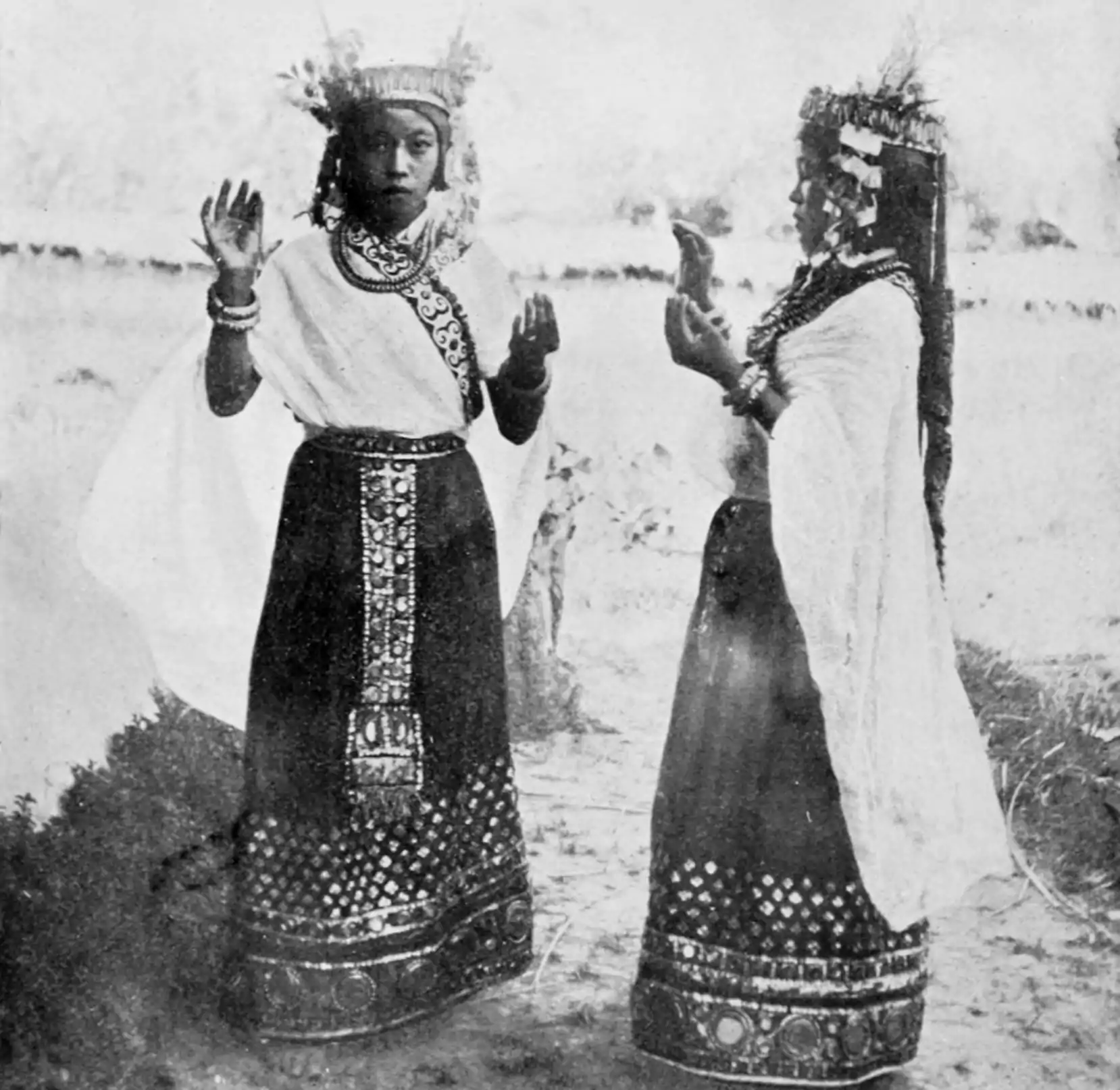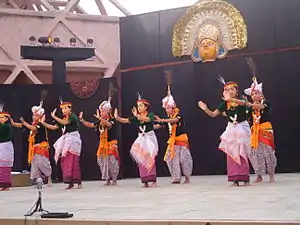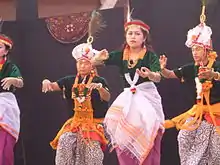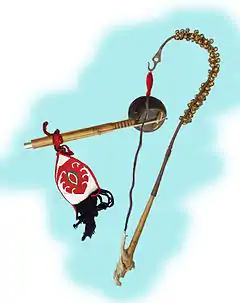Lai Haraoba
Lai Haraoba is a festival associated with Meetei People, celebrated to please the Umang Lai, the traditional deities of Sanamahism.[1] Translated, Lai Haraoba means "merry making of the Gods"[2] in Meetei.



Background
The rituals within the festival are the same except in some items or hymns, such as ikouba, ikourol, and yakairol at the beginning and mikon thagonba, ngaprum tanba at the end of the festival. In the performances, the evolution story with the amorous love-affairs of Nongpok Ninghthou and Panthoibi is depicted and played equally in all kinds of lai haraoba.
Lai Haraoba is a ritualistic festival of the Meiteis observing from the ancient times. It is a ritual enactment of the creation myth. It mirrors the entire culture of Manipur and depicts the close affinities between the hill and plain people. It is in fact the combination of religious recitations, traditional music and dance, traditional social values and ancient cultural aspects.

Lai Haraoba Ishei
Lai Haraoba Ishei is a famous folk song played mainly during Lai Haraoba. This song contains lyrics with veiled references to erotic mysticism. The main quality of the song is the rhythm in its tune.[3]
See also

- Khamba Thoibi
- Lists of deities in Sanamahism
- Sanamahi creation myth
References
- Ayyappapanicker, K.; Sahitya Akademi (1997). Medieval Indian Literature: An Anthology. Sahitya Akademi. p. 330. ISBN 978-81-260-0365-5.
- Acharya, Amitangshu; Soibam Haripriya (27 July 2007). "Respect to foster unity in cultural mosaic - festival/lai haraoba". The Telegraph. Retrieved 5 November 2008.
- "Lai Haraoba Ishei". India9.com. 7 June 2005. Retrieved 5 November 2008.
- Parratt, Saroj Nalini; John Parratt (1997). The Pleasing of the Gods: Meitei Lai Haraoba. Vikas Publishing House.
Further reading
- Kshetrimayum, Otojit. (2014). Ritual, Politics and Power in North East India: Contexualising the Lai Haraoba of Manipur. New Delhi: Ruby Press & Co.
